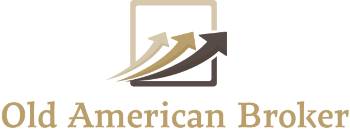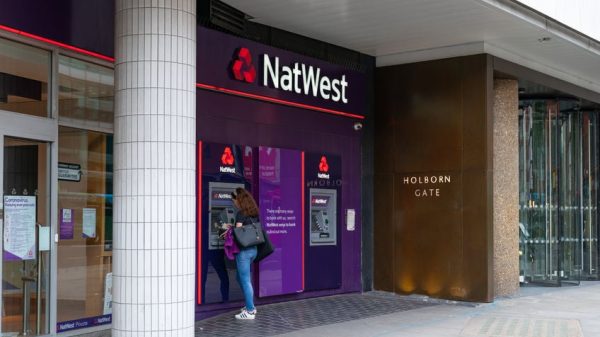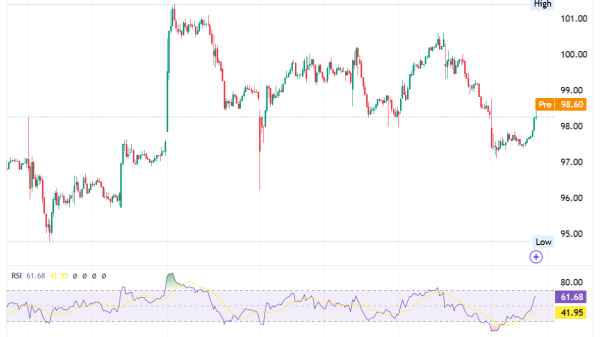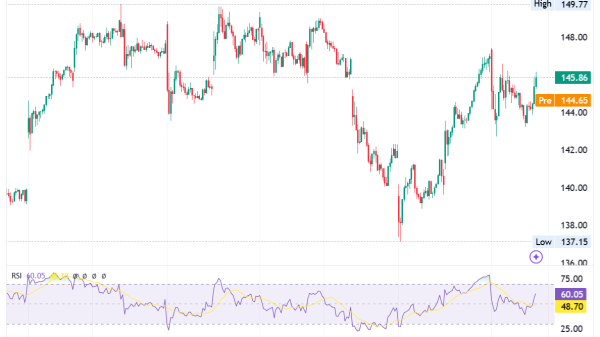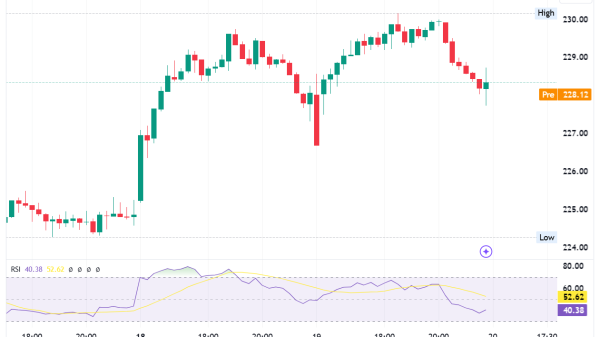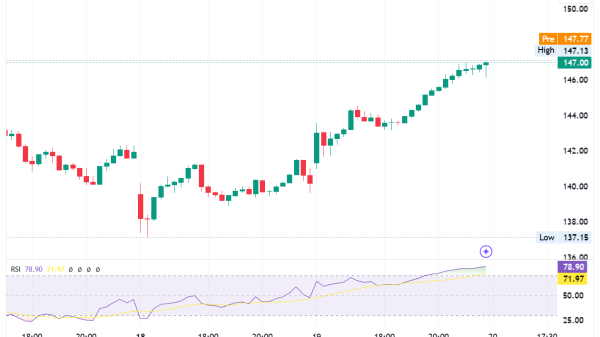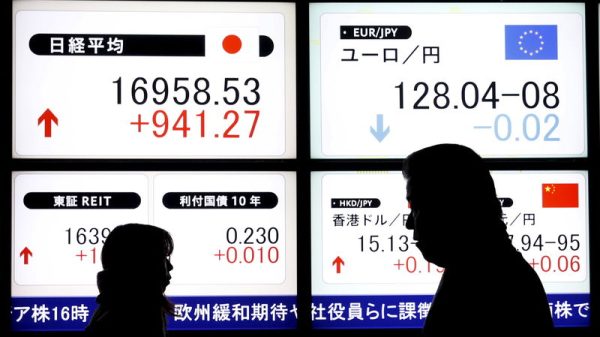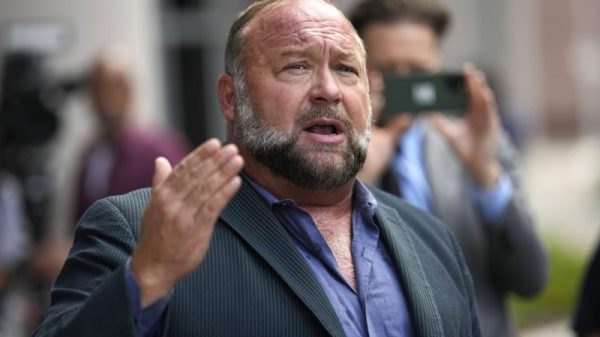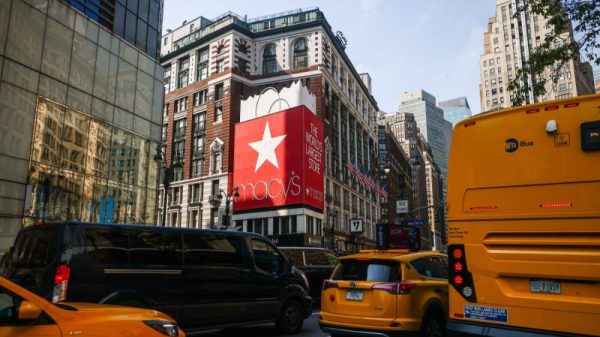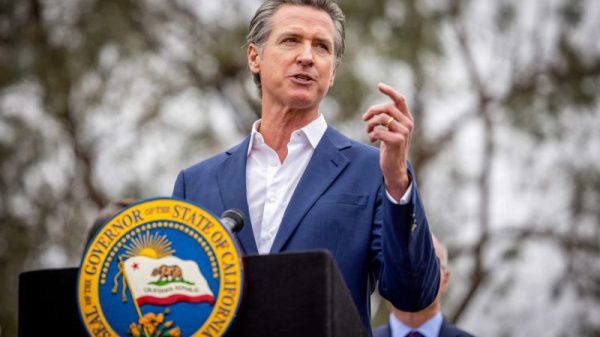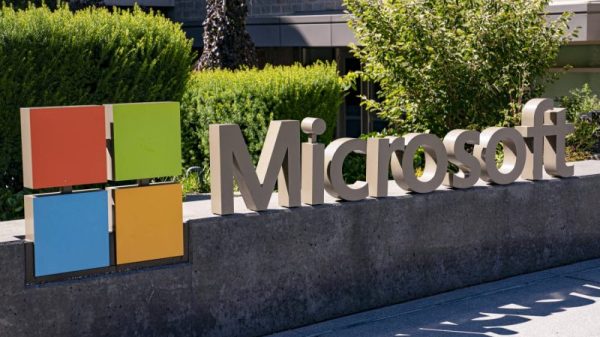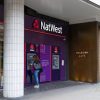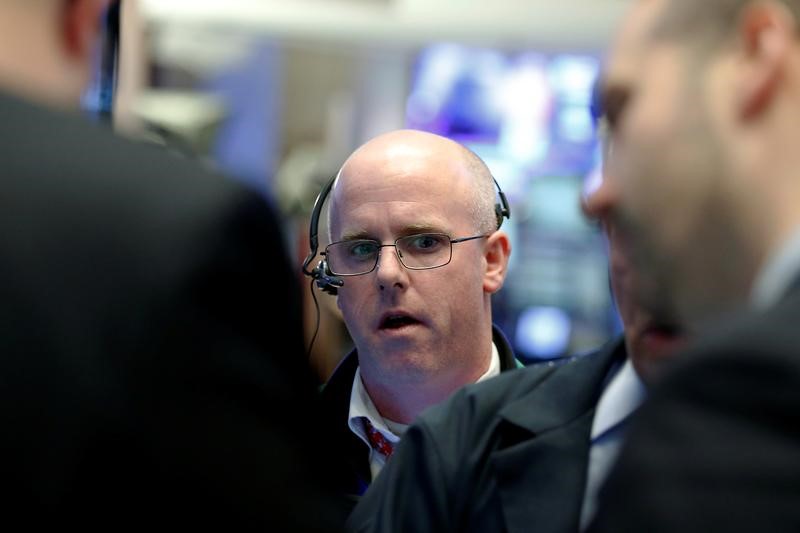
Perrigo Company plc (NYSE:PRGO) has released its third-quarter financial results, revealing a mix of challenges and strategic initiatives aimed at long-term growth. Despite a 3.2% decrease in net sales year-over-year, the company reported significant improvements in operating income and earnings per share (EPS). The earnings call highlighted a 21.3% growth in operating income and a 27% increase in EPS to $0.81. Perrigo reaffirmed its adjusted EPS guidance for 2024, indicating confidence in its strategic initiatives, including Project Energize and supply chain improvements, which have delivered substantial savings. The infant formula segment is showing signs of recovery, and the company is focusing on stabilizing this area and capitalizing on growth opportunities in over-the-counter (OTC) medications.
Key Takeaways
- Net sales decreased by 3.2% year-over-year, with organic sales down 2.4%.
- Gross margin improved to 41%, and operating income grew by 21.3%.
- EPS increased by 27% to $0.81, and the adjusted EPS guidance for 2024 remains at $2.50 to $2.65.
- Project Energize achieved $95 million in gross savings year-to-date.
- The infant formula segment saw a 3% increase in net sales year-over-year.
- Perrigo is focusing on a simplified global operating model and high-ROI innovation initiatives.
Company Outlook
- Perrigo is on track to meet its 2024 EPS commitments, with a focus on margin expansion and efficiency.
- The company plans to enhance free cash flow and continue deleveraging its balance sheet.
- Perrigo is investing in consumer packaged goods capabilities and expects to improve the competitiveness of its U.S. Store Brand business.
Bearish Highlights
- Year-to-date net sales decreased by 7.5%, impacted by challenges in the infant formula and seasonal demand for cough, cold, and allergy products.
- The company has faced industry headwinds, including competition and regulatory changes.
Bullish Highlights
- Perrigo’s Supply Chain Reinvention is expected to save $100 million to $120 million annually by 2025.
- The infant formula segment is recovering, and the company anticipates growth and margin improvement.
- Opill, the contraceptive product, is gaining market share and is expected to contribute to gross margins positively.
Misses
- Despite the overall recovery in the infant formula segment, there are concerns over contract business dynamics and competition.
- The innovation rhythm has slowed, impacting consumer experience and category growth.
Q&A highlights
- Management discussed plans to reduce total debt and interest expenses by 2025.
- The company clarified that it has not exited any major customers but has walked away from low-margin business to improve margins.
- Investments in R&D and advertising are anticipated to enhance competitiveness and market position.
In summary, Perrigo is navigating a period of transition with a focus on strategic initiatives that promise to stabilize and grow its business. The company is halfway through its restructuring efforts and remains committed to achieving sustainable growth and enhancing cash efficiency. With a reaffirmed EPS guidance for 2024 and a series of cost-saving measures in place, Perrigo is positioning itself for a stronger financial future. Further updates on the company’s progress and plans are expected in February 2024.
InvestingPro Insights
Perrigo Company plc’s (PRGO) recent financial results and strategic initiatives can be further contextualized with insights from InvestingPro. Despite the challenges highlighted in the earnings report, there are some positive indicators for long-term investors to consider.
One notable InvestingPro Tip reveals that Perrigo has raised its dividend for 22 consecutive years, demonstrating a strong commitment to shareholder returns even in challenging times. This consistent dividend growth aligns with the company’s focus on enhancing free cash flow and deleveraging its balance sheet, as mentioned in the earnings call.
Additionally, InvestingPro Data shows that Perrigo’s dividend yield stands at 4.36%, which may be attractive to income-focused investors, especially given the company’s track record of dividend increases. This yield could provide a cushion for investors while the company works through its transition period and implements its strategic initiatives.
Another relevant InvestingPro Tip indicates that analysts predict the company will be profitable this year. This forecast supports management’s confidence in meeting their 2024 EPS commitments and aligns with the reaffirmed adjusted EPS guidance of $2.50 to $2.65 for the year.
It’s worth noting that InvestingPro offers 7 additional tips for Perrigo, providing a more comprehensive analysis for investors looking to delve deeper into the company’s prospects.
While the article highlights a decrease in net sales, the InvestingPro Data shows a revenue of $4,428.3 million for the last twelve months as of Q2 2024. This figure provides context for the scale of Perrigo’s operations as it navigates through its restructuring efforts and market challenges.
These InvestingPro insights complement the earnings report analysis, offering investors a broader perspective on Perrigo’s financial health and market position as it continues to implement its strategic initiatives aimed at long-term growth.
Full transcript – Perrigo Company PLC (PRGO) Q3 2024:
Operator: Good morning, ladies and gentlemen and welcome to the Perrigo Third Quarter 2024 Financial Results Conference Call. At this time, all lines are in a listen-only mode. Following the presentation, we will conduct a question-and-answer session. [Operator Instructions] I would now like to turn the conference over to Bradley Joseph, VP, Global Investor Relations. Please go ahead.
Bradley Joseph: Good morning and good afternoon. Welcome to Perrigo’s third quarter 2024 earnings conference call. I hope you all had a chance to review our press release issued today. A copy of the release and presentation for today’s discussion are available within the Investors section of the perrigo.com website. Joining today’s call are President and CEO, Patrick Lockwood-Taylor; and CFO, Eduardo Bezerra. I would like to remind everyone that during this call, participants will make certain forward-looking statements. Please refer to the important information for shareholders and investors and Safe Harbor language regarding these statements in our release issued earlier today. A few items before we start. First, unless stated, all financial results discussed and presented are on a continuing operations basis. Continuing operations include the HRA Rare Diseases business which was classified as held for sale after the first quarter-end and does not include any contributions from the divested Rx business which was accounted for as discontinued operations prior to its sale. Second, organic growth excludes acquisitions, divestitures, exited product lines and currency in both comparable periods. All comments related to constant currency remove the impact of currency translation versus the prior year by applying the exchange rates used in the comparable measurement in the prior year’s financial statements. And third, Patrick’s discussion will focus solely on non-GAAP results, except as otherwise noted. See the appendix for additional details and reconciliations of all non-GAAP financial measures presented. And with that, I’m pleased to turn the call over to Patrick.
Patrick Lockwood-Taylor: Thank you, Brad. Good morning, good afternoon, everyone and thank you for joining today’s call. I would like to begin with an update on the advancements we have made towards building One Perrigo and the progress we have made towards our fiscal year expectations. Stepping back, One Perrigo is an operating platform designed to deliver a unified global operating rhythm built on speed, agility, reliability and data-driven decisions. Main building blocks include one optimized organizational structure, one operating model, a way of working, one unified enterprise technology network, one focused and scalable portfolio. Bringing all these pieces together will allow us to significantly advance our vision to provide the best self-care for everyone. During the third quarter, we have taken significant steps to strengthen our One Perrigo culture and brand building capabilities. By expanding our executive leadership team with the appointment of a new Chief Brand and Digital Officer, Dr. David Ball (NYSE:BALL), in addition to appointing a permanent General Counsel, Charles Atkinson. Both David and Charles bring an immense amount of industry-specific experience and will be instrumental to Perrigo achieving value-accretive, sustainable growth over the long term. I wish them both the warm welcome. Turning to our accretive initiatives. Team has executed Project Energize extremely well, achieving $95 million in gross savings year-to-date, partially offset by reinvestments of $16 million. As a reminder, we expect Project Energize to deliver $140 million to $170 million in gross pre-tax annualized savings, while reinvesting $40 million to $60 million of these savings all by the end of 2026. Early reinvestments have been focused on adding or repurposing key talent across the organization. In addition to the appointment of both David and Charles, we reinvested in other areas which is global quality, IT, category management and disruptive growth. These new leaders have added more than 200 years of combined consumer experience to the company. Our supply chain reinvention program is delivering gross savings of $32 million year-to-date, corresponding cash outflow of $18 million. This program in total has achieved $72 million in gross savings and corresponding cash outflow of $42 million, equating to an extremely solid ROI. The supply chain program has delivered gross margin expansion, unlock capacity in constrained areas to pursue new business, lowered our standard production costs and increased U.S. OTC service levels which most recently achieved 92% across all U.S. customers, up from 80% in the prior year quarter. Efficiencies gained from this program that partially offset lower production volumes primarily in U.S. OTC and Nutrition. We have also made demonstrable progress to augment and strengthen our infant formula business. When net sales grew plus 3% versus the prior year quarter, plus 58% sequentially, more on infant formula in a few moments. Next (LON:NXT), we delivered third quarter gross margin of 41%, an increase of 160 basis points compared to the prior year and plus 40 basis points sequentially. The strong third quarter expansion is driving year-to-date gross margin expansion of about plus 90 basis points. Now to our earnings phasing which remains heavily weighted towards the second half of the year due to the timing of recovery of infant formula and benefits from Project Energize. For the third quarter, we delivered EPS of $0.81, an increase of plus 27% year-over-year and plus 53% sequentially. And we are reaffirming our 2024 adjusted EPS range of $2.50 to $2.65. In summary, we’ve made significant progress in 2024. We’re delivering on our accretive initiatives. The infant formula business is recovering. And we have taken actions to simplify and consumerize our business. There’s a lot more work to do. Now, let’s turn to our third quarter earnings highlights. Third quarter net sales decreased 3.2% year-over-year, while organic net sales declined 2.4% which I will speak to on the next slide. Gross and operating margins expanded meaningfully versus prior year, plus 160 basis points and plus 340 basis points, respectively. These factors led to an operating income growth of plus 21.3% and EPS growth of 26.6% to $0.81 as just shared. Now to organic net sales which declined 2.4%, including an impact of minus 2.8 percentage points from lost distribution of lower-margin products in U.S. store brand in line with our second quarter earnings call discussion. Organic net sales from the rest of the business improved 0.4 percentage points driven by women’s health and healthy lifestyle categories. Nutrition category had a minus 0.2 percentage points impact on organic sales as lower sales of low-margin oral electrolyte solutions more than offset growth in infant formula. Organic sales of our global OTC brands grew plus 2.1% versus the prior year, stemming from strong performance of Compeed, Nasonex, Bronchostop and Bronchenolo. Overall, our brands continue to perform well. Now, to infant formula. Job number 1 in infant formula was to recover and complete our self-remediation actions so that all our sites produce reliable, quality-assured infant formula. We have done this and are now achieving high attainment of quality, production and packaging. Job number 2 in infant formula is focused on bringing back service levels across all retailers and contract customers. In addition to building safety stock to lessen any potential shock to this business. Our highest volume store brand SKUs are now back on shelf and we are currently achieving approximately 85% in stock across our largest customers. Looking ahead, we expect all customers, including contract to be in stock with our highest volume SKUs by year-end. That was the largest store brand customers who have inventory. Job number 3 for infant formula sales activation. This entails driving demand creation to promote switching to store brand formula through online ads, promotions and other activities. This work has recently begun resulting in store brand volume share of non-WIC powder increasing 160 basis points compared to the prior period as of the latest consumption data. The recent and short-lived consumption spike during the first week of October, likely due to pantry loadings from the Port Strike and Hurricane Milton, also contributed to the store brand share gains. Our contract customers recently began reintroducing SKUs and we are leaning in to support and optimize their business, including the launch of several new products. However, early volume share gains for these customers have been slower than the store brand share gains. While a lot of focus this year is being placed on infant formula, we are also driving consumer-preferred innovation. Perrigo is strategically positioned to leverage emerging trends and partner with retailers to drive growth in categories where we play. One trend worth highlighting is the increasing usage of GLP-1 medications, particularly for weight loss. This market is expected to grow from approximately 6 million users today to approximately 30 million users by 2030. GLP-1 users often experience multiple side effects which can be managed with OTC products, creating an opportunity for Perrigo and our retail partners. For example, the GLP-1 may need multiple products to treat nausea, diarrhea, headache, constipation and gas. By focusing on specific claims related to GLP-1 side effects, we can provide retailers with a one-stop hub of convenient and accessible OTC offerings that cater to consumers seeking relief. Retail activation of this innovative program is expected to begin later this quarter. This program is just one example of leveraging Perrigo’s scale and agility to quickly provide unique solutions for an emerging OTC trend. Stepping back, I’ve spent considerable time over the past 16 months assessing our organization, our portfolio and the competitive landscape to ascertain where we play and how we want to win. This work has identified several attractive growth opportunities that have potential to be impactful in the long term. It has also uncovered additional initiatives necessary to rewire Perrigo and set us on a path to achieve sustainable value accretive growth. These initiatives are: one, stabilizing key areas of our business; two, streamlining our operations; and three, strengthening our foundation for the long term or as we will refer to these initiatives, the Three-S model. We will provide more detail on these initiatives during our Investor Day early next year but as a brief overview. First, we recognize the importance of stabilizing key areas of our business, namely infant formula, U.S. Store Brand and core brand share growth in our international markets. Most of these stabilization efforts are well underway and delivering good results, including high attainment levels for quality production and packaging in infant formula, increasing service levels, better joint business planning with customers and driving demand creation which is a critical differentiator for our U.S. Store Brand business. Three, continued execution and achievement of our accretive initiatives. Second, we will position ourselves for long-term sustainable growth by further streamlining the operating model, systems and manufacturing operations to a more simplified global model with one way of working. This will entail one focused and scaled global portfolio prioritizing growth opportunities at the category level and implementing a blended brand strategy tailored to local markets. Finally, we will strengthen and operationalize the company by prioritizing free cash flow, while continuing to delever the balance sheet, concentrating innovation investments of bigger growth initiatives with the highest ROI and leveraging our successful innovation chassis across more brands, including Store Brands. Again, I’m looking forward to sharing details on our path forward at the investor event early next year. In summary, we’re on track to deliver against our 2024 EPS commitments and expectations. We have made significant progress stabilizing core businesses. We have invested in World-Class CPG capability and leadership and we’re executing excellence against our accretive initiatives. I believe we are much better positioned for more reliable earnings per share and revenue growth and we’re also advancing our work to consumerize, simplify and scale One Perrigo. Investment in brand-building capabilities are yielding early positive results, evidenced by solid OTC brand performance in the quarter. And we are significantly advancing our strategic work to fully realize long-term sustainable value-accretive growth. The 9,000 Perrigo team continues to provide significant value to consumers, customers and society as a whole, by delivering our important and necessary self-care solutions. The dedication to our purpose is truly remarkable. They embody the One Perrigo ethos and together, we are committed to making life better through trusted health and wellness solutions accessible tool. With that, I will turn our call to our CFO, Eduardo Bezerra, to cover the financials. Eduardo?
Eduardo Bezerra: Thank you, Patrick and hello, everybody. Looking at the third quarter financials, starting with the GAAP to non-GAAP summary. Primary adjustments to our third quarter non-GAAP P&L were: one, amortization expenses of $51 million; two, the removal of $31 million related to gains on exited businesses and product lines; three, unusual litigation of $25 million; and fourth, restructuring charges of $19 million, primarily related to our Supply Chain Reinvention and Project Energize programs. Full details can be found in the non-GAAP reconciliation tables attached to today’s press release. From this point forward, all financial results discussed will be on an adjusted basis, unless otherwise noted. Turning to our third quarter and year-to-date P&L. Since Patrick covered Q3 net sales, I would like to highlight the meaningful Q3 year-over-year operating income growth of 21.3%, driven by the recovery in infant formula, including favorable production efficiencies, net favorable pricing across the enterprise and benefits from Project Energize. Net sales year-to-date decreased 7.5%. Year-to-date, organic sales were down 6.3%, including minus 3.7 percentage points from infant formula and minus 4.7 percentage points from lower first half seasonal demand for cough, cold and allergy products and SKU prioritization and now lost distribution in the U.S. Store Brands. These impacts more than offset plus 2.2 percentage points of growth across the rest of the business. Year-to-date, operating income increased 1.8% as net favorable pricing and benefits from accretive initiatives more than offset a minus 10.4 percentage points impact from infant formula and minus 3.5 percentage points impact from exited businesses and product lines. Year-to-date EPS declined $0.09 due primarily to discrete tax benefits in the prior year of $0.11, inferring a $0.02 increase at a constant tax rate. Additionally, year-to-date EPS included a minus $0.26 impact from infant formula, highlighting EPS momentum underpinning the business, driven partially by management taxes. The team continues to focus on achieving margin expansion. This expansion was driven by, number one, infant formula recovery which drove operating margin expansion of more than 1,900 basis points in the Nutrition category; two, benefit from our accretive initiatives; three, favorable mix within Store Brands and across the global portfolio; and fourth, operating margin expansion in the U.S. oral care business of 830 basis points due to pruning of the portfolio and cost optimization. I should also note that CSCI delivered a record quarterly operating margin in Q3. Great job done by the team in the quarter. Switching to organic top line performance by segment is starting with CSCI. Organic growth in the quarter was plus 1%, driven by positive 3.5 percentage points from the Upper Respiratory, Skin Care and Women’s Health categories. Growth across these categories was driven by share gains in key brands, including Bronchostop, Compeed and EllaOne. This growth was partially offset by supply constraints in Pain & Sleep Aids categories and lower consumer demand for VMS products. In CSCA, organic net sales declined 4.4% due primarily to minus 4.4 percentage points from the lost distribution in U.S. Store Brands, we mentioned in previous quarter. Lower sales in the Nutrition category of minus 0.4 percentage points, offset by growth of positive 0.4 percentage points across the rest of the portfolio. Sales of U.S. brands, including Nasonex and Prevacid in addition to the Opill were significantly higher compared to the prior year. Turning to third quarter operating income; both segments delivered double-digit growth versus prior year. Record quarterly operating income in CSCI included benefits from accretive initiatives, lower variable expenses and favorable pricing. These drivers more than offset the impact of lower volumes and exited businesses and product lines. The FDA growth was driven by infant formula business recovery, benefits from accretive initiatives and favorable store brand mix. These factors more than offset the lower volumes, including loss distribution and higher advertising and promotion investments which supports the growth of our U.S. brands. Third quarter EPS of $0.81 increased $0.17 or 26.6% versus prior year driven by both business performance and accretive initiatives. Q3 EPS also included a net impact of minus $0.03 from currency translation and exited businesses and product lines. Now a bit of color on our three major initiatives and their projected cash outflows. Our Supply Chain program kicked off in 2022 and is expected to achieve $100 million to $120 million in gross pre-tax annualized savings by the end of 2025. The cash cost to achieve these benefits were originally estimated at $160 million. Given our heavy scrutiny on every single dollar spent, we now expect to achieve the same benefits for $30 million less than originally projected. Our infant formula self-remediation actions began in January of this year, following updated manufacturing guidelines introduced by FDA last year. The focus of this initiative is to ensure all infant formula sites are producing reliable, quality assured infant formula. We now project a cash outflow of approximately $25 million in 2024 related to these initiatives which again, as good news, this outflow is below our original projection of $35 million to $45 million. Finally, to Project Energize, our global investment and efficiency program to drive the next evolution of capabilities and organizational agility. We now project cash outflow for this program below our original estimate by approximately $5 million, another bit of good news and we remain on track to deliver our previously stated benefits. In summary, these three actions are necessary to help stabilize key parts of our business, streamline our organization and strengthen the company for the long term. Through a stringent approach to capital allocation, we now expect the total cash outlay from these three initiatives to be approximately $50 million lower than originally projected. Turning now to our recent refinancing. During the third quarter, we enhanced our debt structure by issuing $715 million notes and EUR 350 million notes, both due in 2032. Both issuance were highly oversubscribed and well received by fixed income investors resulting in lower coupon rates than the initial price. Proceeds from these notes were used to redeem our $700 million notes due in March of 2026 which came off our balance sheet early in the fourth quarter and to prepay $390 million of our existing Term Loan B. These refinancing actions will result in a lower weighted average interest rate after executing derivatives, while having no impact on our total long-term debt outstanding or credit ratings. Cash on the balance sheet as of third quarter end was $1.5 billion, an increase of $921 million from the second quarter including the $700 million supply to redeem the notes due in 2026. Cash inflows included $205 million of upfront proceeds from divesting the rare disease business which closed in July, approximately $1.1 billion in proceeds from the refinancing I just discussed which closed in September and third quarter operating cash flow of $42 million. Cash outflows for the quarter included $27 million of capital expenditures, $38 million return to shareholders through dividends, translate to a current dividend yield above 4% and the prepayment of approximately $390 million on our Term Loan B. On October 2, after the third quarter ended, we completed our refinancing activities by fully redeeming our $700 million notes due in 2026. Deducting these amounts from the third quarter end balance implies a pro forma cash balance of approximately $764 million at the end of the third quarter. Next, fourth quarter operating cash flow is expected to be sizable as this is typically the largest cash generation quarter due to natural phasing. Separately, in the second quarter of this year, we settled and paid a $97 million shareholder lawsuit. This quarter, we received $70 million from insurance coverage related to this segment. We believe we are entitled to recover at least the remaining $80 million of the shareholder settlement and we will continue to vigorously pursue recovery during the fourth quarter. These factors are expected to translate into meaningful fourth quarter operating cash flow conversion. Lastly, we intend to fully repay $400 million of Perrigo notes when due in December 2024, with cash on hand, resulting in end of year net leverage of approximately 4x, down from 4.5x at the end of the third quarter. Taking all these moving parts into account, we continue to plan for year-end cash on the balance sheet of between $500 million to $550 million, assuming insurance recovery of the remaining shareholder setting. Turning quickly to guidance. Our 2024 outlook remains largely unchanged. While we expect organic and all-in net sales towards the lower end of their respective outlook ranges, adjusted gross margin between 39% to 40% and meaningful year-over-year adjusted operating margin expansion. In addition, we now expect full year adjusted effective tax rate of 19% to 20%, slightly lower than before. And finally, we are reaffirming our EPS outlook of between $2.50 to $2.65. In closing, the team has taken swift action to offset known and unknown headwinds achieving year-to-date operating income growth compared to the prior year. We remain on track to deliver significant benefits from our accretive initiatives at a lower cash cost than originally planned. We bolstered our balance sheet by refinancing $1.1 billion of debt and expect to lower our total debt outstanding and interest expenses in 2025. Looking ahead, we will continue to focus on free cash flow generation and investing in our business for the long term. Thank you for your ongoing support and we further — as we further our journey to fulfill our vision as One Perrigo. With that, I’ll turn back to you, Brad.
Bradley Joseph: Thanks, Eduardo. Operator, can you please open the call for questions?
Operator: [Operator Instructions] Your first question is from Susan Anderson from Canaccord.
Susan Anderson: I guess, maybe just on the Infant Nutrition business, good to see that getting back on track. How should we think about the ramp in fourth quarter? And then also for 2025, should we expect kind of the normal run rate of sales there? And then just in terms of the improvement in the margins, the 1,900 basis points, I guess, is that — should we expect that to continue as we kind of look forward at that level, I guess?
Eduardo Bezerra: Okay. So again, so as we look into infant formula in the fourth quarter, right? So we continue to expect, as we shared in the beginning of the year, right? So first half would be impacted and then we would see a recovery and a ramp-up going on there. So the store brand is really going pretty well on track. Third quarter, the focus was really recovering our share in distributors. And so we were able to reposition product in five of our largest customers. And then, in the last quarter, we expect to expand that to our full retailer. And so that’s what we have in our plan to continue to see growth there. The key question mark is really our contract business, right? So as you saw on our note, we grew our store brand share by 160 basis points, while in total, 40 basis points. So there’s still — given the dynamics going on, mainly on the branded side, we’re watching closely what is going to happen with our contract business, right? So that’s an important aspect. Related to — and then looking forward to 2025, right, so we continue to see a recovery of our store brand market share. Right? So and we expect to continue to be that strong progress throughout the year and we’re going to continue to watch closely what happened with the contract business. Right? So as you know pretty well, there is a new player in the branded business that is taking significant share on that segment. And so we’re watching closely how the dynamic is going to play in the branded share. Last but not least, as you were asking about the improvement on the margin side, right? So remember, last year, we saw significant low margin in 2023, right. So we expect that the level of margins that we’re getting this year in terms of gross margin to continue to evolve, again, highly dependent on the contract business and how that’s going to play out but we continue to expect significant progress, both in gross margin and operating margin to continue in 2025 as we addressed most of the issues that we found in the first half of 2024.
Susan Anderson: Okay, great. And then, maybe if I could add one more just on Opill, if you could talk about. Obviously, some nice growth there. But I guess, how it’s trending versus your expectations, how the new customer acquisition is going and the marketing around the product. And then maybe just any thoughts around expectations for Opill for next year?
Patrick Lockwood-Taylor: Yes. Susan, this is Patrick. So Opill, it continues to gain momentum. It’s almost a three share now of all contraceptives over the last 4 weeks. And we are, as you rightly say and seeing, week-on-week sequential growth. Awareness has grown very well over this quarter. Trial is good and repeat rates, well over 40% is actually benchmark. So we’re pleased with it. We’re not delighted with it. We still think that there is upside to it. It’s a new category in OTC and so there’s a lot of learning to be done, a lot of optimization. We need to improve in-store visibility. We’d like to see more display that can generate significant awareness. We’re also continuing to learn who are our key user groups. We seem to have three key user groups and we’re doing the research to understand why they use, how to convert them faster, how to really focus our marketing on growing share with those three user groups. So good work to be done to make it even bigger. And we expect, yes, to see continued growth going into ’25.
Eduardo Bezerra: And Susan, just to add to what Patrick said, why we do not expect the Opill to be accretive to EPS, we’re seeing it being accretive on our gross margin, both in ’24 and we continue in ’25.
Susan Anderson: Yes. Okay, great. And do you expect it to be accretive to EPS in ’25?
Eduardo Bezerra: So remember, as we said, more towards the end of the year, right? So we said since the beginning that we didn’t expect in the first 18 months it to be accretive. So as we continue to rationalize our A&P to drive the margin because remember, it’s very important to us, given the 3-year exclusivity period that you really get the Opill brand in the hands of consumers. And so we’re maximizing that opportunity. So that when we come back with the store brand product, we’re going to be able to capture the most value in that category.
Operator: Your next question is from Keith Devas from Jefferies.
Keith Devas: Maybe just starting with the restructuring programs and I guess the cash outflows are coming in better than expected and maybe adding some context on how that kind of changes your priority list for investing or some investments then being pulled forward? And if so, what areas of the organization would that be in?
Eduardo Bezerra: Well, Keith, Eduardo here. So we continue as we prioritize our investments, right? So we still have some investments that we expect to do in the organization. Right? So as Patrick highlighted to really build and strengthen our business, making sure that our R&D and A&P are matching a similar level of the branded companies. So that’s one key area that we’re looking there as well. And how we continue to drive efficiencies in our operations, right? So we continue to invest in our systems, etcetera, as part of our One Perrigo strategy to really standardize and unify that so that we can get those benefits of Project Energize, Supply Chain Reinvention to continue to last for the long term. So these are some of the key areas that we’re continuing to focus to reinvest.
Keith Devas: Got it. That’s helpful. Maybe secondly then on just adding to your comments around the seasonal nature of cough/cold season and really just your exposure to the drug and pharmacy channel. What are you guys seeing there? I know there’s some unique pressures in the U.S. with some key customers of yours. And so any context on the potential impact, one, from a seasonal nature and cough/cold trends in the U.S.? And then secondly, just what you’re hearing from some of those key customers in that channel and how that might impact your thoughts on the U.S. OTC business?
Patrick Lockwood-Taylor: Yes, this is Patrick. Cough/cold business is about 10% to 15% of our business. So we’re relatively well insulated if it is a weak season. The indications are a fairly normal season. But of course, we benefit from any upside. Good question on shopper dynamics and channel switching. Typically, we don’t see an impact when shoppers move channels. But most shoppers use all channels anyway. And if they’re moving their purchase from one channel to another, that’s really a neutral effect for us. We actually enjoy higher shares outside of the pharmacy channel. So if anything, this is a slight tailwind for us.
Operator: Your next question is from Korinne Wolfmeyer from Piper Sandler.
Korinne Wolfmeyer: I want to touch a little bit on the — I guess, the customer controls you’re putting in and exiting relationships with some of the key customers that may be a little bit lower margin. Can you talk a little bit about the true margin differential of these customers? And then, I believe in the press release, you talked a little bit about the lower volume, maybe being a little bit of a margin headwind. So at what point would this flip and become more of a tailwind versus a headwind given the volume impact you’re seeing?
Eduardo Bezerra: Yes. Thank you, Korinne. So one thing important, we didn’t exit the customer, right? So we operate with all the retailers in the U.S. and that’s very common that at different times of the year or multiple years, they do their RFPs, right? So — and that was a portion of the business with one specific customer that we walked away, because those were very low margins. And as you see, at least in the third quarter, we had a positive impact on our margin, because of the margin of that net loss business there. So to us, it’s margin accretive term of those actions. We’re always watching that closely, not to have an impact on absorption. And so that’s an area that we’re watching very closely, as we progress through the year. And to your second question, some of these actions that we took in the first half, they’re starting to play now. We’re starting to see Q3 and Q4. Those exited specific parts of the business will have an impact on our top line and that may get further into the first half of 2025. But with the wins that we had over the last 3 to 5 months, we expect to start offsetting that in 2025. I would say, starting in the second quarter but more consistently in the second half of 2025. And just to be clear, those businesses will present a higher margin that — versus what we lost, okay?
Korinne Wolfmeyer: Great. Really appreciate all the color. And then if I could just touch a little bit on what’s going on with the selling expense. It looks like you stepped down a little bit this quarter. Was there any shift in timing related to the spend that we need to be aware of, as we head into Q4? And then what’s — how should we be think about the proper run rate for that selling expense going forward?
Eduardo Bezerra: Yes. So when you look into the overall operating expenses, right, so as we launched Project Energize in the first quarter, we were expecting to see significant benefits in the second half of the year. So what you’re seeing there is coming down in the third quarter. In the first quarter, we expect that to continue. But as we look into 2025, right, so we took a very strong position on A&P and R&D, given some of the top line impacts that we had. And so as we work on our plans for 2025, we expect those two lines to recover as compared to this year. But still, as we shared, Project Energize will deliver incremental savings in 2025 versus what we are delivering in 2024. Which, by the way, year-to-date were $95 million.
Operator: Your next question is from Chris Schott (ETR:1SXP) from JPMorgan.
Unidentified Analyst: This is Ethan [ph] on for Chris. Just starting off at this point in the infant formula recovery, what’s been the early feedback on demand for your private label and store brand formula from both a consumer and a retailer perspective? And then any updates or changes in thinking on your overall market position? Or concerns on being able to sell the product you produce given the new player in the industry?
Patrick Lockwood-Taylor: Yes. Chris [ph], this is Patrick. I’ll take this and then Eduardo will add some further commentary. We are recovering store brand share with consumers, largely in line with our expectations. We have modeled out a certain amount of new mothers who enter the category every month or see exit. We know how to convert them to store brand and at what time and have restarted that marketing activity. So we are in line with U.S. store brand. I know a lot of people are watching units sold. The correct measure is non-WIC powder pound consumption. Reason for that is a lot of the units that moved from small tubs to bigger tubs because the industry had to rationalize its SKU, because of the new FDA regulations and some manufacturing efficiencies. So we are seeing poundage almost mapping perfectly onto our recovery expectation, okay? So that’s point one. And we will continue to see that store brand share grow as we introduce innovation next year and new SKUs, we actually hope share will actually recover beyond historical levels. That will be at some point through 2025. So that remediation has gone extremely well. These are extremely high-quality plants and really set benchmark of the industry. We are seeing production and packaging at or above historical levels. So we’re running higher quality plants more efficiently than we have done historically and we are seeing store recovery and store brand consumer recovery completely in line with our expectation and that will accelerate. Yes, you’re right, because the industry has been disrupted these past couple of years. First, the COVID and then the new FDA regulations. There has been some new foreign brand entrants into the market. They’ve established quite a sizable position. They have taken share from some of the other branded players, some of whom we contract manufacture for. So there are some short-term dynamics playing out and we will continue to monitor and manage that in order that we get to full utilization of our plants. Okay? But these are brands owned by other owners, again and it’s for them to maintain their market competitiveness and consumer appeal. So that’s really the sort of position and the outlook on infant formula. Anything to add?
Unidentified Analyst: And then one other question is just on 2025 more broadly at this point, how are you thinking about the pushes and pulls to EPS given the ongoing infant formula recovery along with the contract wins coming on board in 2025 and a number of other dynamics that are working through the business?
Patrick Lockwood-Taylor: Yes, I’ll start and then Eduardo will definitely add some more detail. We are highly sensitized and sensitive to the $3 EPS target. We are literally in the middle of our detailed budget planning for ’25. Yes, you’re quite right. There are some headwinds which are common across anyone in CPG, consumer, regulatory, channel shifts, etcetera, etcetera, the sort of usual suspects. But there are also tailwinds for us. We have a recovering business. We have a stabilized U.S. Store Brand business. And again, we have a bigger growth arena than any of our competitors. Why? Because we compete at 3 price points across hundreds of molecules. And so we’re able to read where the growth is, where the seasonality spikes are and sort of pivot accordingly. So we’re working through those growth opportunities, where do we focus, what is the relative ROI of those. But again, we are very focused on the $3 EPS target. Eduardo?
Eduardo Bezerra: Yes. Just to provide a little bit of color, right? So we expect to announce our guidance in our Q4 earnings in late February. So in terms of tailwinds, as Patrick mentioned, continue to see category growth. Right? So the new business wins that we’re seeing in Store Brand offsetting the volume loss that we expect that a big and stronger position in the second half of 2025. Also, the store brand, infant formula recovery that we started to see now the curve is starting to shift up. Right? So as it continues from Q4 and also continue the brand growth. So as we’re talking about both in CSCI and CSCA on our brand portfolio, we continue to see great strides there. Some headwinds, we continue to see competitive marketplace. So both in U.S. Store Brand that as regular as well as we just highlighted on the U.S. infant formula branded business and how could that impact our contract business. And also to the point of the question that Korinne made, as we look into our variable expenses for 2025, we expect those to return to a more normal level in the year, both in A&P and R&D as we progress throughout the year. The last piece also to highlight is we saw in CSCI very strong pricing this year but given the competitive dynamics that’s happening across all the major brands, we’re seeing pricing being tighter. And so we expect not to see the same level of significant benefit on pricing for next year. So again, there are a lot of still moving pieces but as Patrick highlighted, we still focus on getting the $3 that’s our target and we’re going to continue to work on that and give you further update in February.
Operator: And the last question is from Daniel Biolsi from Hedgeye.
Daniel Biolsi: I wanted to follow up on that last answer from Eduardo. The price gap between national brands and store brands, do you think that should widen or narrow alternately to benefit sales or pricing? And would that be a boost to your sales?
Eduardo Bezerra: So just to be clear, the question is what happened with the price gap between national brand and store brand across all the categories or any specific area?
Daniel Biolsi: Your products versus the national brands?
Eduardo Bezerra: Okay. Yes. So again, as we talked before, we saw a widening that over the last 18 months. We’re starting to see, the national brands starting to make further promotions to recover volumes. And so we’re seeing a little bit of reduction of that widening but it’s really hard to see that this it’s becoming really a stronger trend. We’re going to be watching closely what happens with the cough and cold season as well to see if that starts to narrow as mainly the national brands are looking to recover volumes and these are going to make it more competitive in the marketplace.
Daniel Biolsi: Okay. And if I could follow up. How does the innovation pipeline look to you? Did we see less emphasis from the manufacturers on innovation during the pandemic and now we’re seeing that return to sort of more normal levels?
Patrick Lockwood-Taylor: Yes, this is Patrick. Just to add another data point on your first question. Store brand volume share is up 120 basis points on the most recent 13-week period. So more consumers are shifting to store brands as they become more aware that these are identical bioequivalents at tremendously better value. So we’ve seen that. We are seeing more investment and requests for investments in demand creation from our retailers to support the store brand proposition and to grow share. These are significantly more profitable for these retailers and offer a much better value in an economic type cycle. That’s on that. Second, on innovation. We’re going to talk a lot more about innovation in February. For us, specifically, we spend a lot of money on innovation and it’s our belief that we can make that work much harder for us in terms of qualifying consumer preferred innovation, focusing on those categories and brands that we want to disproportionately drive and making sure that innovation is more scalable. Historically, we’ve done small innovations for particular brands in particular countries. And frankly, the payout is just not competitive enough. So we have massively reduced the number of innovations we’re doing. We’ve about tripled the size of those individual innovations, the NPVs, are dramatically better as I’ll talk about it in February and they’re focused on those brands that we want to focus on. We can scale them across more brands, more countries and just get much better payout for those as well as them being better for consumers. In terms of innovation rhythm, generally, I’d say there has been a slowdown over the last few years. And that’s not good for the consumer. It’s not good for category growth rates. I know we will be bringing bigger, better innovation. Obviously, I don’t know on competition but we will talk about innovation as a key growth driver and performance driver for us in February.
Operator: Thank you. There are no further questions at this time. I will now hand the call back to Patrick for the closing remarks.
Patrick Lockwood-Taylor: Yes. Thank you very much and thank you for joining us today. We do have a strong quarter and we hope what you see is the internal structure of this company getting demonstrably better and stronger, positioning us for more reliable growth going forward. We think the blueprint Perrigo sustained growth is now becoming clear. We can categorize it under the Three-S model of stabilizing four parts of our business, continuing to streamline our structure, our operating systems and our manufacturing and then strengthening those key growth vectors that we see for the long term and maintaining disproportionately our branded growth. We’ve made a lot of progress this year and it was a challenging year on stabilizing important parts of our business, including infant formula which recovery is excellent and fully in line with expectations at a lower cost than we had first outlooked [ph]. We are back to a competitive position in our U.S. Store Brand business. As we mentioned last quarter, we are winning tens of millions of dollars of business and we will see that growth playing through in ’25 in the second half. This work of stabilizing these core businesses, I’m pleased to say it’s now largely behind us. We continue to progress action to streamline and simplify our business to improve cost, cash and operational reliability. We’re approximately halfway through this work. That is all cash upside that positions us well. There is more work to do to strengthen our business and maintain the excellent branded growth that we’re seeing in international to sustain that and to ensure that we’re achieving that in the U.S. This really is the third component of getting to sustainable value-accretive growth. We remain hyper focused on delivering and delevering through 2025 to improve operational financial reliability, cash flow generation. Cash flow generation remains our top priority and we think the Three-S strategy will significantly improve cash efficiency that I will outline with Eduardo in February. We are delivering on our commitments in 2024 through both improved financial steering and operational reliability and improved in market competitiveness. We, of course, operate in a dynamic and competitive market but we will continue to address the daily business challenges as they come up on our journey to realize the full potential of our significant asset base. Again, very good work and progress structurally. And my thanks to the entire Perrigo team and to you for joining us today.
Operator: Thank you. Ladies and gentlemen, the conference has now ended. Thank you all for joining. You may all disconnect your lines.
This article was generated with the support of AI and reviewed by an editor. For more information see our T&C.
